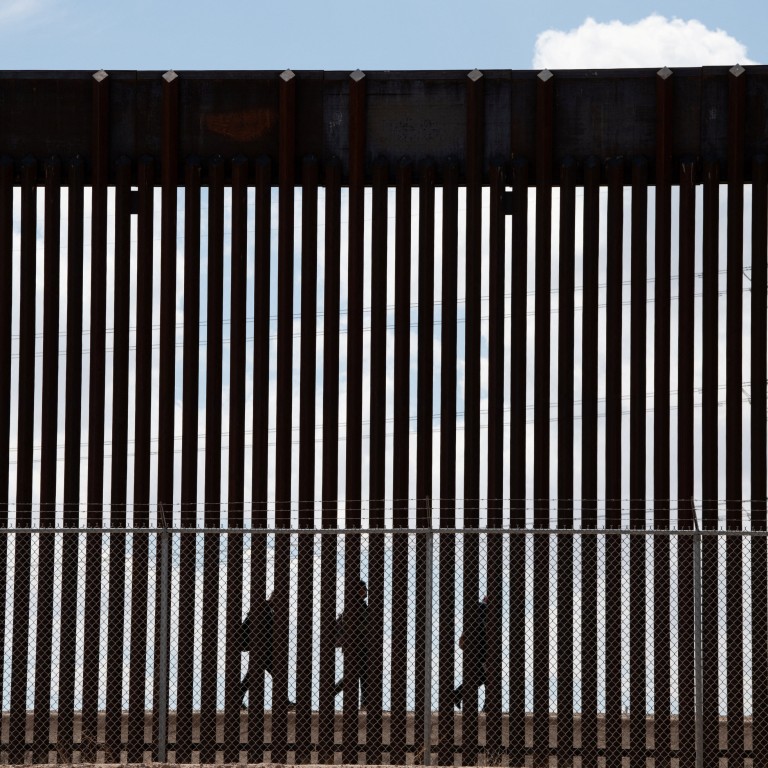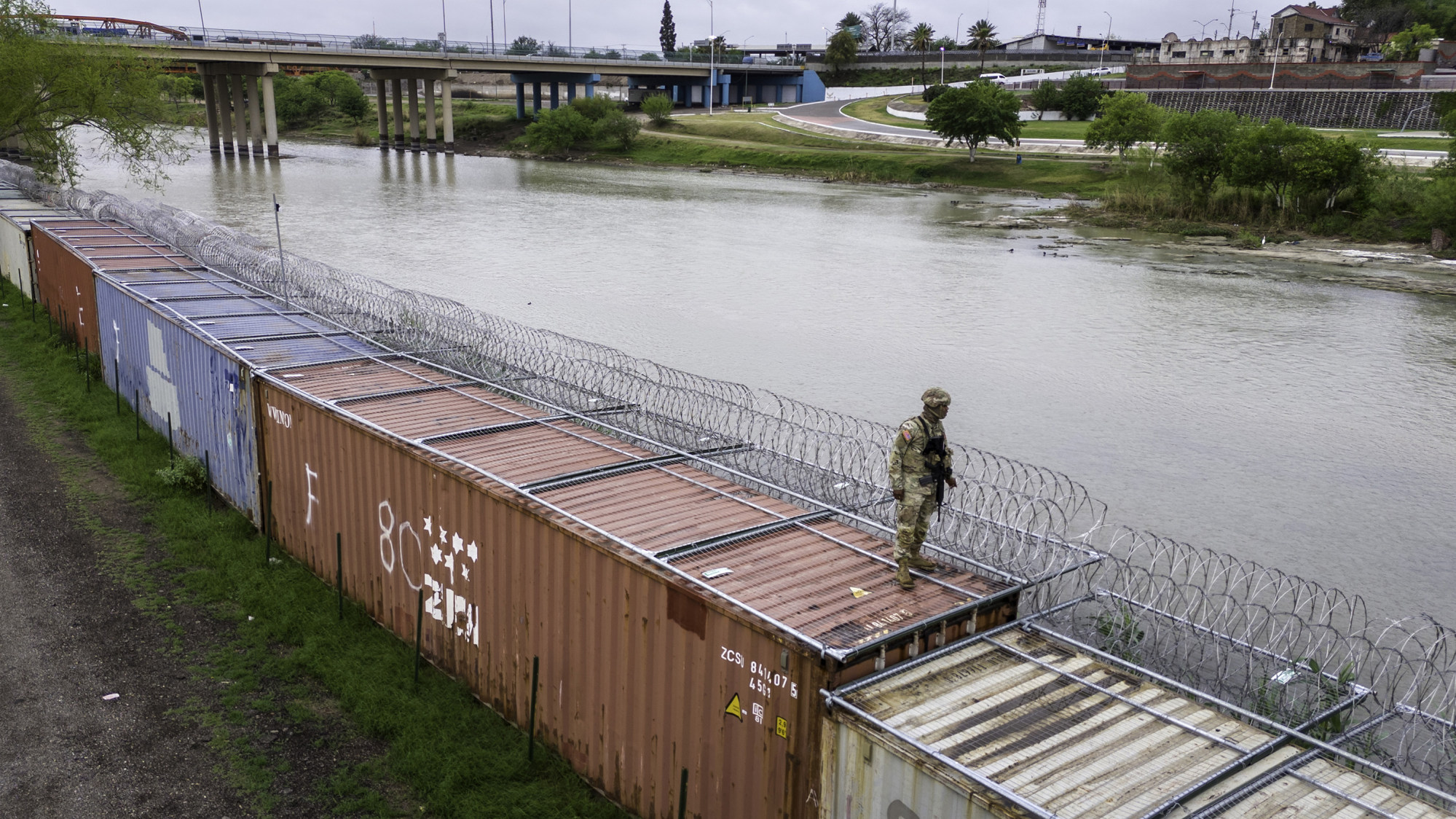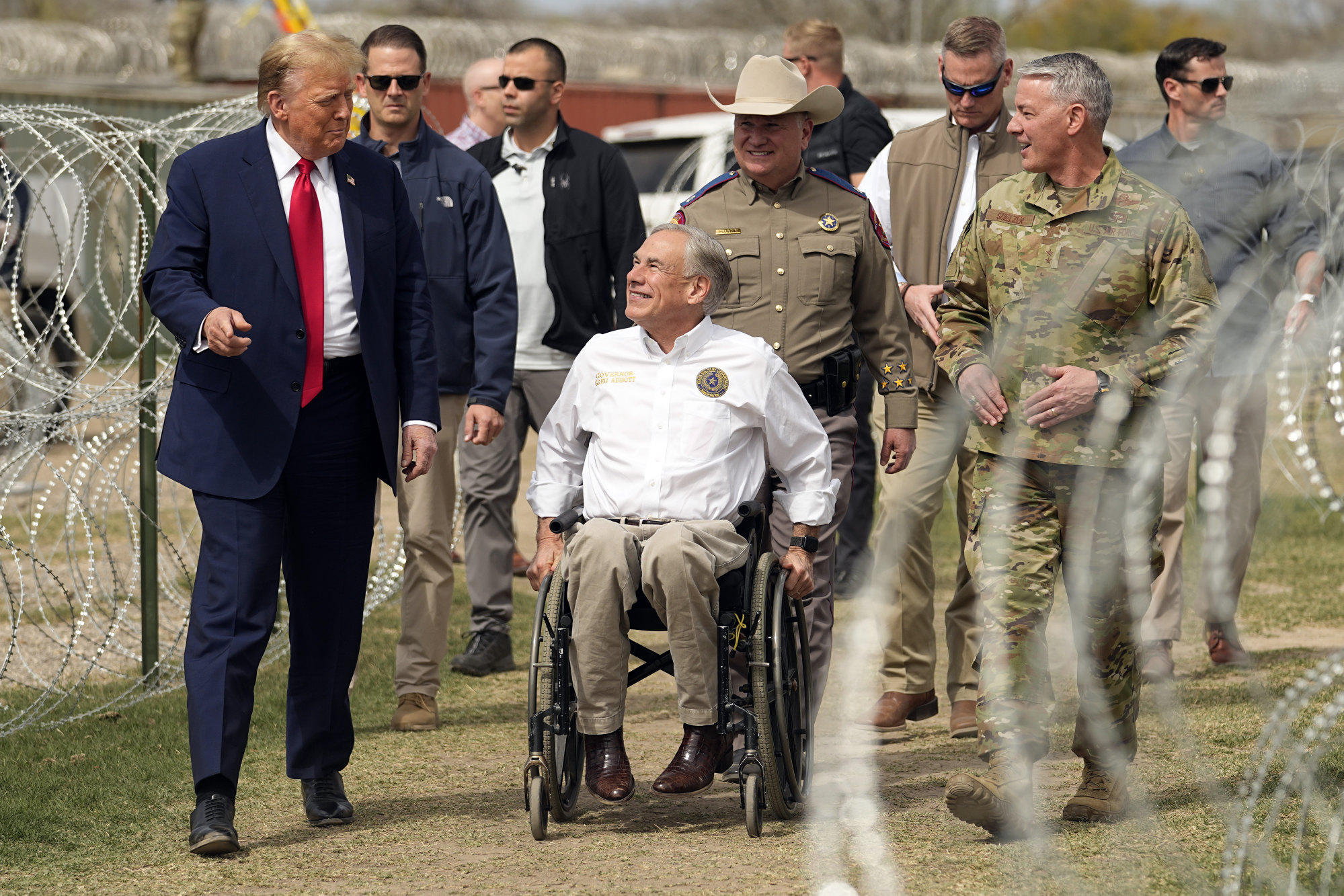
US Supreme Court allows Texas deportation law in blow to Biden administration
- White House disagrees after US Supreme Court lets Texas border enforcement law take effect
- Texas law allows state police to arrest and deport migrants who cross illegally into the US from Mexico
A divided US Supreme Court let Texas start arresting and deporting people who enter the country illegally, refusing to block a new law that the Biden administration says will be an unprecedented intrusion on federal power to set immigration policy.
Over three dissents, the justices on Tuesday rejected the administration’s request to keep the Texas law on hold while a legal fight goes forward at a lower court. Two pivotal justices left open the possibility the administration could renew its request in the coming weeks.
Justices Sonia Sotomayor, Elena Kagan and Ketanji Brown Jackson dissented. “The court gives a green light to a law that will upend the long-standing federal-state balance of power and sow chaos,” Sotomayor wrote for herself and Jackson.
The rebuff is a blow to US President Joe Biden’s administration on an issue that has defined the 2024 presidential election campaign.

Polls show voters give Biden poor marks for his handling of the border, making immigration one of his top liabilities heading into a likely rematch with former President Donald Trump.
White House Press Secretary Karine Jean-Pierre said in a statement that the administration “fundamentally” disagrees with the court’s order. She said the law “will not only make communities in Texas less safe, it will also burden law enforcement, and sow chaos and confusion at our southern border”.
Trump hates Latinos, says Biden in pitch for votes in Nevada and Arizona
Texas is asserting broad new authority to tackle illegal immigration, making the novel argument that the US Constitution authorises the state to defend itself against the influx. Texas points to a constitutional provision that lets states engage in war and take other actions when they are “actually invaded”.
As is customary with emergency orders, the court as a whole gave no explanation. But Justices Amy Coney Barrett and Brett Kavanaugh said in a concurring opinion that Supreme Court intervention would have been premature given that the 5th US Circuit Court of Appeals hasn’t formally acted on a stay application Texas filed there. A trial judge had ruled against the state.
The 5th Circuit instead issued what it called a “temporary administrative stay” of the district court ruling, intended to apply at least until the court heard arguments in the case.
After the Supreme Court order was handed down, the appeals court shifted course and scheduled a hearing for Wednesday morning on the question of whether to temporarily block the law.
Barrett said the 5th Circuit should be the “first mover” on the Texas stay application and “presumably can do so promptly”.
“If a decision does not issue soon, the applicants may return to this court,” Barrett wrote, referring to the Biden administration and immigrants-rights advocates represented by the American Civil Liberties Union.
Sotomayor blasted the 5th Circuit’s handling of the case, saying it “issued a one-sentence administrative order that is maximally disruptive to foreign relations, national security, the federal-state balance of power, and the lives of non-citizens”. The 5th Circuit is perhaps the nation’s most conservative appeals court.
Texas Attorney General Ken Paxton hailed the Supreme Court decision as a “HUGE WIN” in a post on the X social media platform. “Our immigration law, SB4, is now in effect,” he said. “As always, it’s my honour to defend Texas and its sovereignty, and to lead us to victory in court.”
The statute, known as SB4, makes it a state crime to illegally enter or re-enter the US through Texas. The measure lets state judges order some undocumented immigrants to leave the country, tasking Texas law-enforcement officers with ensuring compliance.
Rise in Mexican cartel violence fuels record migration to US
The law will mean “profoundly altering the status quo that has existed between the United States and the states in the context of immigration for almost 150 years,” Solicitor General Elizabeth Prelogar, the administration’s top courtroom lawyer, said in a court filing.
Texas officials led by Republican Governor Greg Abbott told the justices the law is needed to deal with an unprecedented border surge.
“Texas is the nation’s first-line defence against transnational violence and has been forced to deal with the deadly consequences of the federal government’s inability or unwillingness to protect the border,” the state argued in court papers.

Texas says the measure simply mirrors federal immigration law – something it argues the Supreme Court has allowed. The law “does not intrude on a recognised, exclusive federal field,” the state told the Supreme Court.
The administration says the federal government has exclusive authority to interpret and enforce the nation’s immigration law. Prelogar told the justices the Texas measure can’t be squared with a 2012 Supreme Court decision that struck down key parts of a similar Arizona law.
“SB4 impermissibly intrudes into a field reserved to, and occupied by, the federal government,” Prelogar argued.
Enforcement of the measure could be complicated by actions taken in Mexico. Roberto Velasco Alvarez, the Mexican undersecretary of foreign affairs for North America, said in a social media post that Mexico “rejects” the Supreme Court’s decision and “will not accept repatriations from the state of Texas”.


